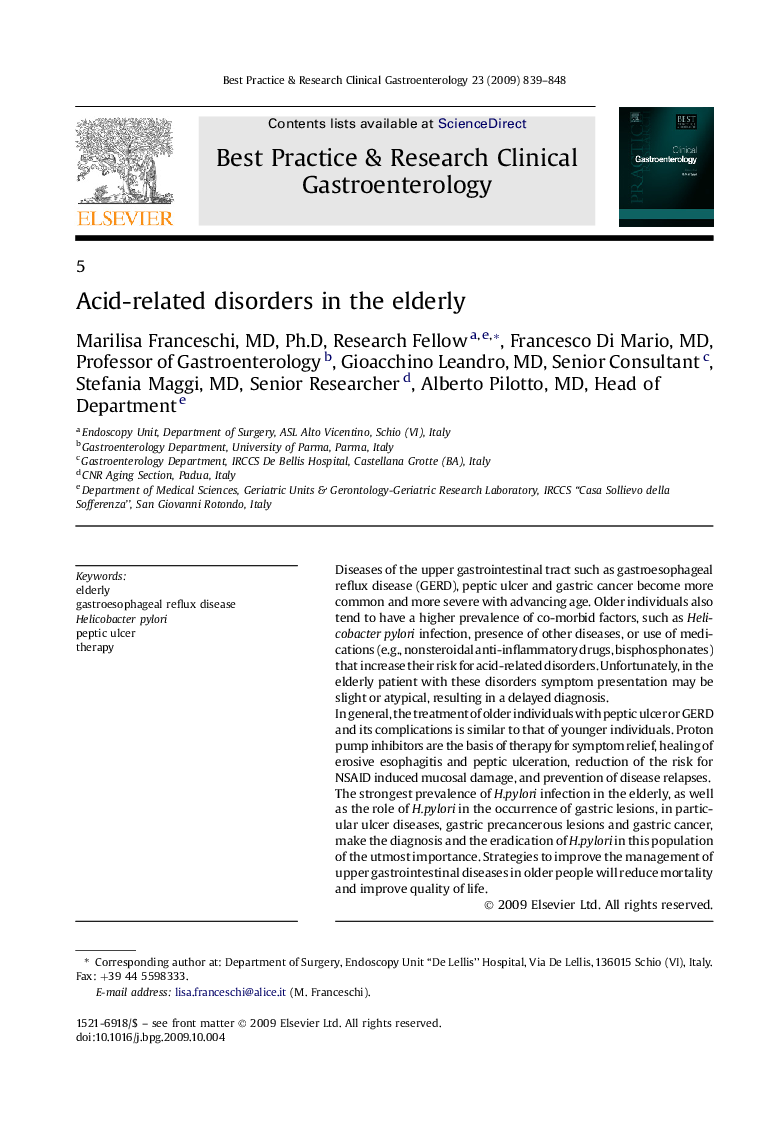| Article ID | Journal | Published Year | Pages | File Type |
|---|---|---|---|---|
| 3254482 | Best Practice & Research Clinical Gastroenterology | 2009 | 10 Pages |
Diseases of the upper gastrointestinal tract such as gastroesophageal reflux disease (GERD), peptic ulcer and gastric cancer become more common and more severe with advancing age. Older individuals also tend to have a higher prevalence of co-morbid factors, such as Helicobacter pylori infection, presence of other diseases, or use of medications (e.g., nonsteroidal anti-inflammatory drugs, bisphosphonates) that increase their risk for acid-related disorders. Unfortunately, in the elderly patient with these disorders symptom presentation may be slight or atypical, resulting in a delayed diagnosis.In general, the treatment of older individuals with peptic ulcer or GERD and its complications is similar to that of younger individuals. Proton pump inhibitors are the basis of therapy for symptom relief, healing of erosive esophagitis and peptic ulceration, reduction of the risk for NSAID induced mucosal damage, and prevention of disease relapses.The strongest prevalence of H.pylori infection in the elderly, as well as the role of H.pylori in the occurrence of gastric lesions, in particular ulcer diseases, gastric precancerous lesions and gastric cancer, make the diagnosis and the eradication of H.pylori in this population of the utmost importance. Strategies to improve the management of upper gastrointestinal diseases in older people will reduce mortality and improve quality of life.
